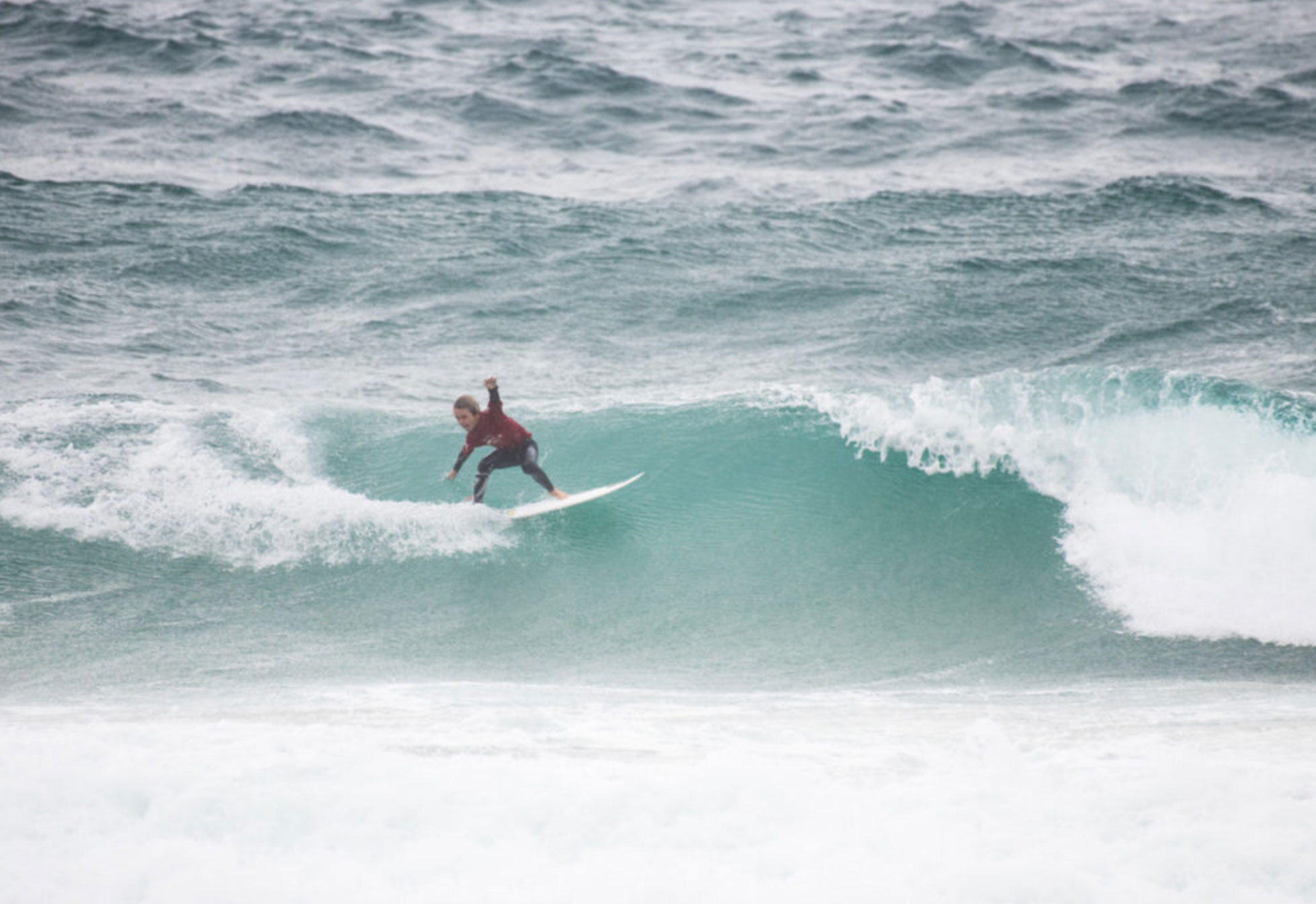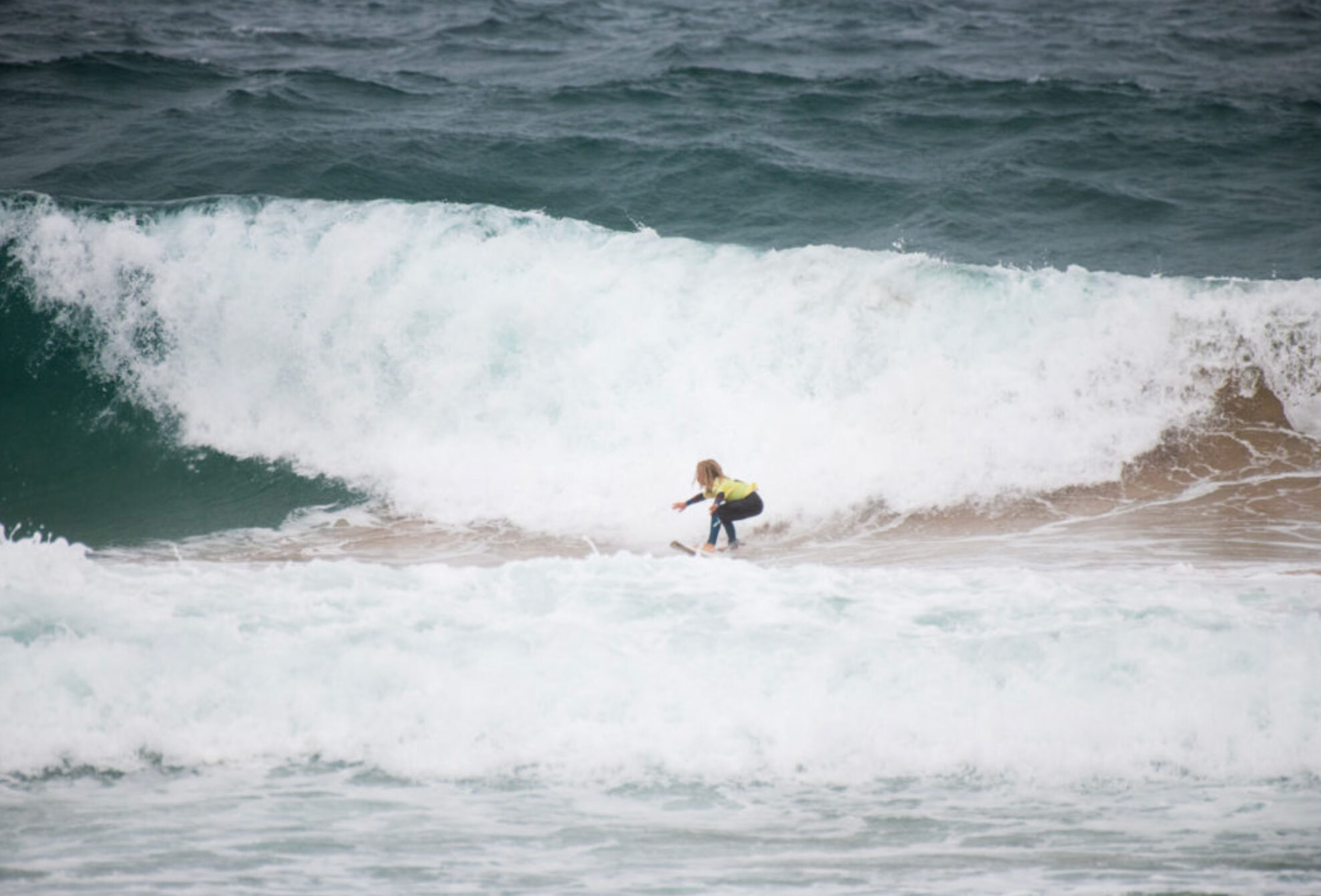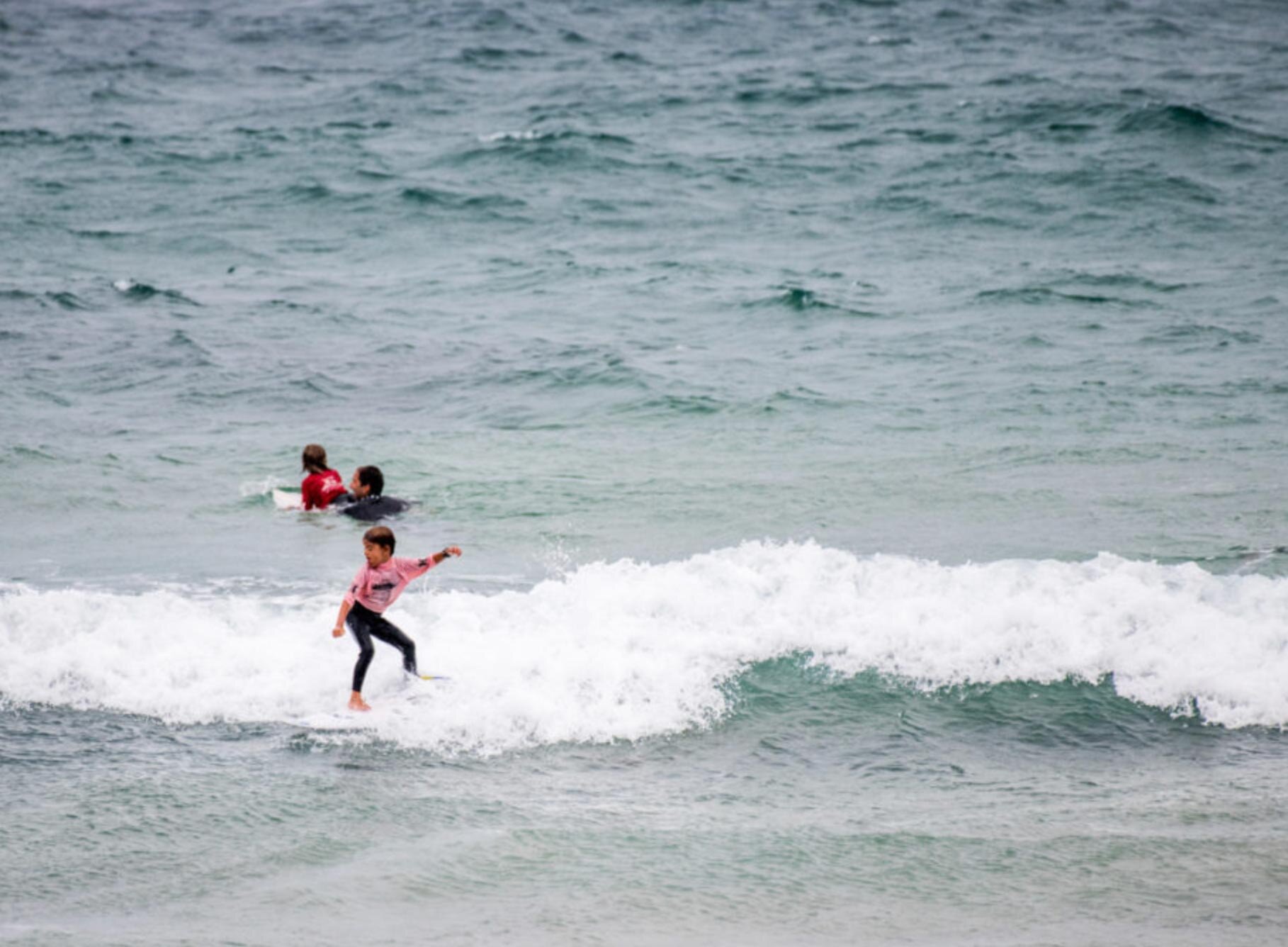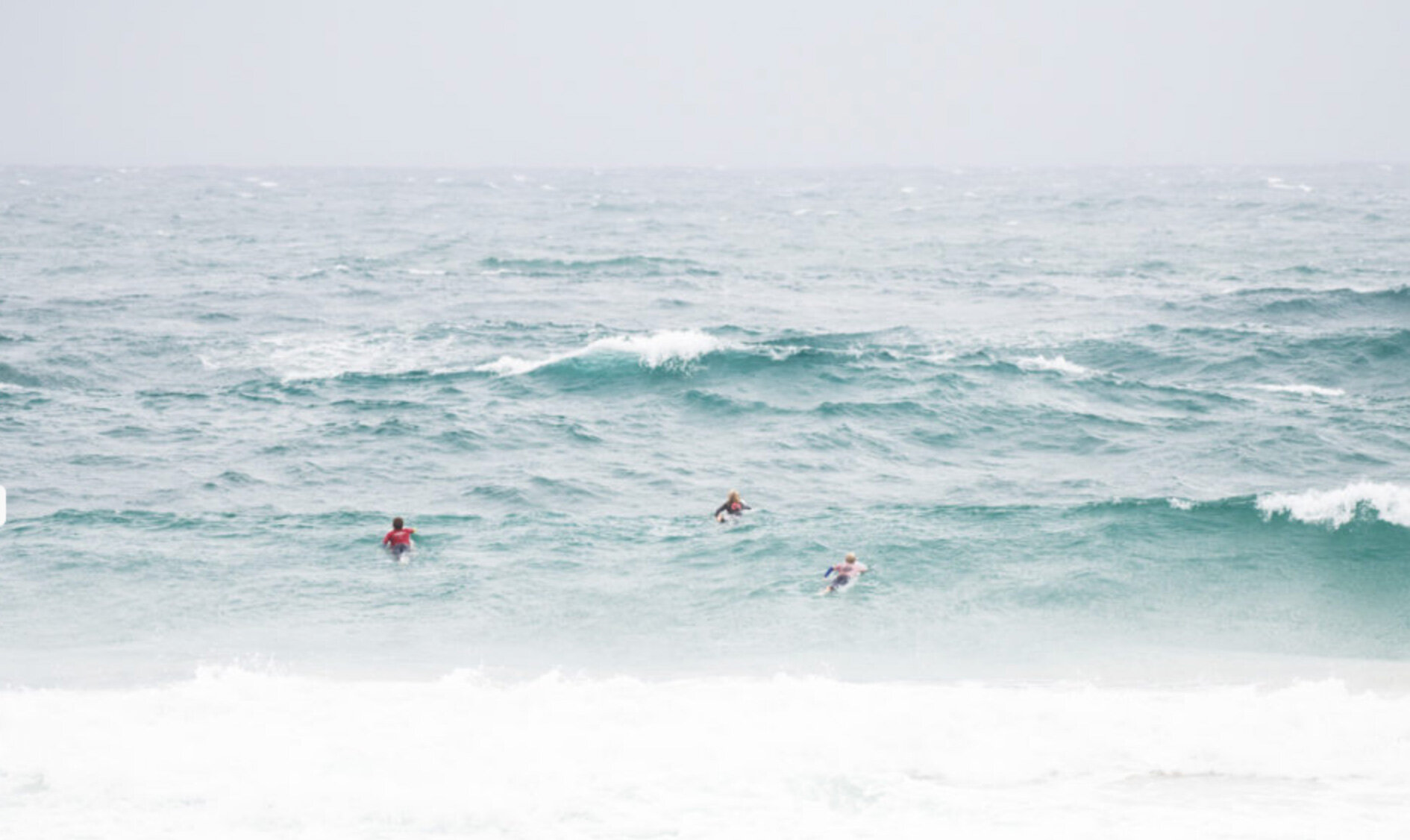groms surf comp
With the cancellation of the physical Sydney and Bali events due to COVID-19, BL Blast Off is returning in 2020 with a new online format! Young surfers from all over the globe are encouraged to submit video footage of themselves showing their stoke in the water.
Here’s everything you need to know
Grommets aged 14 years and under can upload and submit as many videos as they want via www.bartonlynch.com throughout the event window for a $3 per submission entry fee. Videos must have been shot in 2020 and can be of a single wave, single manoeuvre or edited clip up to one minute in length.
Winners will be announced weekly for Most Entertaining Clip and Kids Who Bring the STOKE! Overall winners will be announced in the following categories: The Expert’s Choice, People’s Choice, Best Wave, Best Wipe Out, Best Tube, Best Air and Most Potential.
The Video Challenge will be officiated by Barton Lynch himself, alongside a panel of the world's most exciting young surfers including Jack Robinson, Kyuss King, Vahine Fierro, Mahina Maeda and Eli Hanneman.
Videos will be uploaded daily to the BL Blast Off channel at Epicentre.tv, so be sure to follow along to see who is leading the charge in the People's Choice category in real time!
KEY DATES
Tuesday September 15 : Submissions Open
Saturday October 31 : Submissions Close
Thursday November 5 : Voting Closes
Saturday November 7 : Winners Announced
Barton Lynch has earned himself an impressive surfing reputation. A Northern Beaches local, he has gone on to be inducted into the Australian Sporting Hall of fame and taken out the World Title. We spoke to Barton ahead of the launch of his new Global Video Challenge, about leaving behind a legacy, lockdown life in Oahu, what it takes to have talent in the surf, the evolution of his BL Blast Off event and his favourite surfing memories in the Gong.
Words Emma Smith
How old were you when you first began surfing?
I was introduced to surfing by my father. My dad was part of the Surf Life Saving Club. We were at the beach all day every day, so it kind of felt like a natural progression and he got me started when I was about seven… 50 odd years ago, mind you!
You had an impressive junior career, achieving multiple victories across the Pro Junior and JJJ Junior competitions. What was it like for you growing up and balancing the demands of competitive surfing with other commitments?
It was a simple world back then. I was born in the 60s when there was no social media. Televisions came out when I was a kid. It was a much simpler world and it didn't seem like you needed much to survive. I just committed my life to surfing from a very young age and somehow it's still paying dividends. I didn't have a back-up plan… there was no back-up plan. I left school in Year 10 to be a professional surfer. I was going to do that. My mum said, “Alright, you’ve got six weeks or you'll have to go and do something else.” Nothing really happened in six weeks and I had to go and do a bar service course at East Sydney Technical College just to satisfy my mum. It was a good idea, too - if you were on the road travelling, you could get work doing that. So that kept the heat off from Mum for a while and then contests started to go well and I could ditch the bartending. I had a really good junior career. The whole thing is like a dream really.
Over the course of your career you’ve built yourself an impressive legacy. You’ve been inducted into the Australian Surfing Hall of Fame, the Australian Sporting Hall of Fame, taken out the 1988 Billabong Pro and the World Title, become a published writer and commentated for the World Surf League. What would you consider to be your ultimate career highlight?
I suppose as a father of two, it’s trying to be a good dad and making your children's lives better. My dad was working-class - he was a policeman and also had a lawn-mowing business on the side. I didn't grow up in money. We knew the value of money and Dad worked for what we had. I grew up with those working-class values, so to hand that on to your children and to take them up the standard of living ladder, is special. To me, being a good dad is the greatest achievement. That’s the main thing. The rest of it is just fluff and candy, isn’t it?
Since retiring from competition in 1997 you’ve redirected your focus to performance consultancy and coaching and have even worked alongside the Canadian Olympic Team. What do you love the most about this line of work?
It seems quite natural to me to help people because I see things. I feel like I have a little bit of an innate sense for people's personalities and the way they're feeling. I can kind of connect with them as a human on that basis and have trust and create friendship and then am able to tell some of the hard truths as well. It's quite a fun thing to do - connecting with people, bringing good things into their lives. I feel really fortunate that I got to live my dreams. It’s awesome. The more you do it and the more involved in it you are, the better you get at it, and I’m in mate. I’m committed to surfing. I want to see how good I can be, for as long as I can be.
Currently, you split your time between Sydney’s Northern Beaches and Oahu’s North Shore, which is where you are now. What does a typical day for you look like in Oahu?
It’s pretty awesome. We are in a little house that I bought 30 years ago in 1989 with a friend of ours. He had to sell about 10 years ago and we bought him out so I've been coming here for a very long time. It feels a lot like home and my son who is six has probably spent more time here than anywhere else in his life. We ordinarily would come here for about five months every year through the winter surf season, but this year we’ve been here through the whole COVID-19 thing. We felt like it was a good place to bunker down. Being here during lockdown kind of made us realise we live in lockdown anyway. We go from here to the beach, it’s a stone’s throw away. We most likely visit the beach at least three times a day.
My son goes to school three days a week on another coastline, so we’ll drive him there and then we’ll go to the beach and have a surf. If I’m not surfing with my son, I’ll foil or go out on the jet ski. I’m always in the ocean or on the computer. That’s the amazing thing about the modern world - it doesn't really matter where you are, you can work from anywhere.
In 2006, you created “BL Blast Off” - a friendly and encouraging surfing event for grommets aged 14 years and under that focuses on surfing improvement and family fun. What inspired you to create this event?
My dad sadly died when I was 11 in 1974. Before he died he had the idea to swim from Palm Beach to Whale Beach in Sydney. His mates all thought he was mental, but he got a handful of them and they all swam it. Then the next year they did it as a race, about 20 or 30 of them. He passed away the next year. That swim then became the Bob Lynch Memorial Swim, which became the Big Swim, then the Macquarie Bank Big Swim and it still runs to this day - 3000 people swim from Palm Beach to Whale Beach in January each year. It’s Whale Beach Surf Club’s biggest fundraiser event for the club and it showed me what an incredible community asset my father left behind. It’s amazing. It’s the oldest, longest-running open ocean swim race in Australia. It was the very first one. I feel proud of that in my bloodline and my connection that I have with the ocean and surfing. After seeing what my dad had created, I was motivated to create something on those beaches that was my contribution. I started the Blast Off with that motivation and 15 years later, 330 kids do it every year. We’re at capacity with hundreds of kids on waitlists and it's become the biggest, best, family surf festival in the country. I’m so proud that the two biggest annual events on the Northern Beaches of Sydney and on the Peninsula where we live are my dad’s swim and my surf festival.
Can you explain to us what the event typically consists of?
It's a four-day event and we go mobile so depending on the conditions we can move between Avalon, Palm Beach and Whale Beach. Because that is what surfing is about - moving with the conditions and understanding that. The first three days are a coaching program. If you imagine a typical surfing competition, a kid will go out to surf his heat and they’ll hear, “Your last wave was a 3.28 and the wave before that was a 4.97. You’ve had a 7.23 and your two days total is 7.98 and you've come fourth.” I’ve been around those numbers all my life. And I don’t understand it after all this time. It’s just mathematics, isn’t it? With that in mind, I knew there was a better way. So at my festival, we don’t score a single ride for the first three days. The kids surf in their groups for a session and we watch them and tell them what they did well and what they could do to improve. They all surf three times before they’re eliminated so they get that advice and experience, go home and try again the next day. At the Sydney event, we record the session and they come in from the water and up to the van to watch the video and have it explained by a coach. That goes on for three days. You get one point for first or six points for sixth. But the points don’t really matter. So we attract a lot of first-timers who come to our event as their first exposure to that type of world. We take the top 12 kids through the semis and finals on finals day, and that's when we go to a traditional contest format. We’ve got the best kids who want to win it and that way we also attract the best kids in the country. The next job is to try and get that same spirit and ethos in a video challenge remotely to kids around the world.
Unfortunately, this year due to the COVID-19 pandemic, the Blast Off event in Sydney is unable to go ahead. This year, Blast Off will return in a new online format as a Global Video Challenge! Can you tell us how this virtual idea came about?
Having to cancel those physical events this year, it was just a natural progression that we took it online and seized that opportunity. Normally most of my time is spent at WSL events, Hurley events, travelling for coaching, boat coaching trips and all the other stuff I do - I’m hardly home. We are always on the road, so this has been an opportunity for us to be still and in the one place for the longest time ever. We’ve been able to create this new Video Challenge. So the time has been spent really productively and I feel like we’ve created a really cool thing. We hope for it to become the largest global surfing community of grommets in the world.
What are you most looking forward to about the new Blast Off Video Challenge?
I'm excited for the very first video submission. I can’t wait to start giving stuff away like Santa Clause.
Is there one specific wave or surf spot that you just can’t get out of your head?
You know what the problem is? There's lots of them! There are so many waves that I just love. I have relationships with them. I think about them. Not being in Australia for the summer and seeing posts of waves I love back home was hard. The waves are dead flat in Oahu in summer - it’s like a lake out there! I miss Indonesia and the waves over there. The wave I surf the most though is Sunset Beach over here. It’s fascinating because nearly every single day it’s different. I can surf from one to 25-foot waves just out the front of my house. It’s sick.
Is there anything left to complete on your surfing bucket list?
I just want to stay healthy. And continue to have opportunities to create things and build things. In the end, what you leave behind is a body of work. And I want to create a good body of work and leave behind something I'm proud of.
What is the best piece of advice you’ve ever been given from someone in the surfing industry?
It’s really, really hard for me to do, but to listen more and talk less. I have a big problem with that [laughs]. I talk way too much. But it’s worked for me for a long time too, so I don’t see the pattern of behaviour changing any time soon.
Have you ever surfed in the Illawarra?
One of my all-time absolute heroes is Terry Richardson from Corrimal, or ‘Richo’. I can even remember him being referred to as ‘Corrimal Cannonball.’ One day I was skipping school to go to the Coca-Cola Surf about to watch the pros in action. Terry Richardson is such a good bloke that he stopped and picked this school kid up that was hitchhiking on the side of the road. That was me, and I got into the car with my hero and went to that surfing competition for that day and hung out watching them all do their thing. And then Robbie Page from Bellambi. He’s a pipeline master and an absolute brother of mine. So I feel like the people in the Gong are good people. I always loved that area. I have lots of good memories there. I remember going to Sandon Point one time and getting my tyres let down, cause that’s the way it goes [laughs]. I love it. I won an event down there, the IMB OP Pro at North Beach Wollongong, that was a good memory. Lots of great times in the Gong.
How do you recognise when someone has talent in the surf?
First of all it’s that connection with the ocean and being able to be in it without fear. You’ve got to surrender. Because it will kick your arse. You’re not in control and you aren’t the boss - it doesn’t matter what you think. You get some very good life lessons from the ocean and you get shown humility. So it takes a certain kind of personality to be willing to go through that experience. And then to be a competitor and lose as often as you do to win, it takes a certain kind of person to accept that amount of failure, for success. Not many people do. It’s a personality thing way more than it’s about technique.
Can you give us a few top tips?
See the good. I see myself as an animal. I see myself as an organism. I see myself as part of the environment. I am my environment. It’s me. There’s that opportunity in life to connect with the natural things in life, and that to me is where the good stuff is. It’s so important to engage with the environment and let it teach you the lessons.






